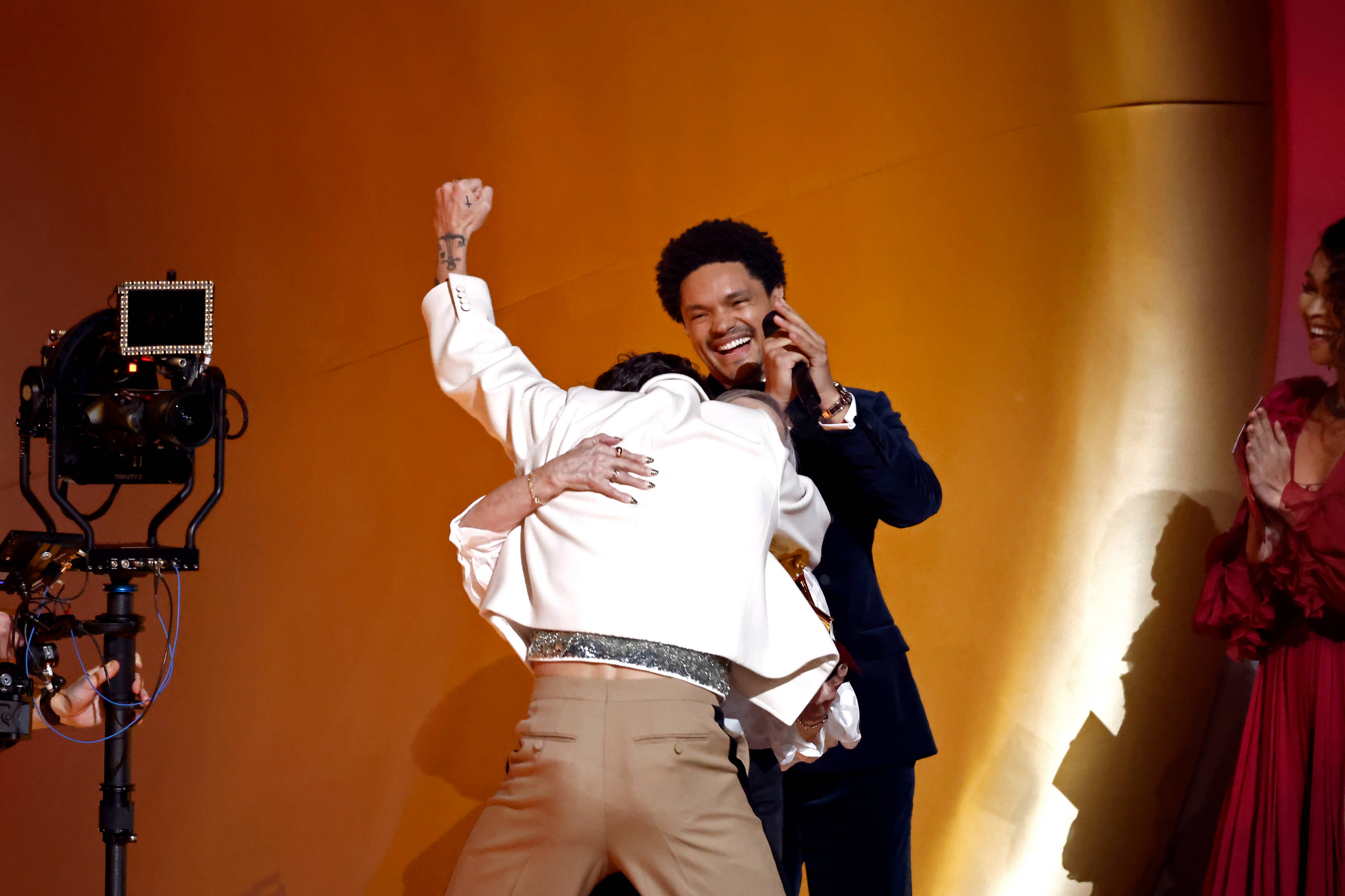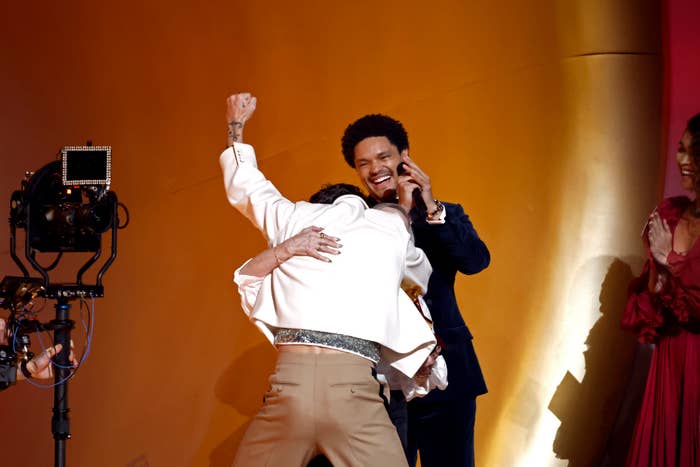
On Monday, Hov said “The truth is, we grew up wanting to be on the Grammys, and it was our goal. We just want them to get it right.” It’s true that the Grammys have always been considered the gold standard of music accomplishment, but does the next generation of industry professionals, artists, and mentors view the awards in the same way?
Most of the frustration surrounding the awards today focuses on the oddball nominees who win in big categories every year—like Bonnie Raitt stealing Song of the Year from the likes of Beyoncé, Adele, and Lizzo this year—but the process to become a voting member in the Academy is just as confusing as the Grammys outcomes. The Recording Academy outlines how the voting process works on its official website, which consists of several rounds of submission verification, voting members voting on nominees, and then finally winners.
“The Academy basically looks at your qualifications and will split you into three tiers,” Daniela Rivera, 38, governor of the Atlanta Chapter of the Academy and four-year voting member, explains. “We have Grammy U, Professional, and Voting. So when I submitted, because I’m qualified at the voting level, I was automatically accepted as a voting member and it went into effect that year I accepted.”
They’re a peer-to-peer award system—meaning people become members of the Academy based on different criteria surrounding their musical résumé and activeness in the community but, most importantly, through recommendations from two active Academy members.
“I think a lot of times, people get intimidated by the exclusivity of [The Academy].”
Daniela’s credentials, for example, include being a multi-platinum mixing engineer who was awarded a Grammy Certificate for her work on Rihanna’s Grammy-winning album “Unapologetic,” and also serving as a Grammy U mentor. Geronimo Vannicola, another mentor in the Grammy U Mentorship program and five-year Academy member who voted for the first time this year, adds that it can be difficult for a younger person to become a voter because of the lengthy application process.
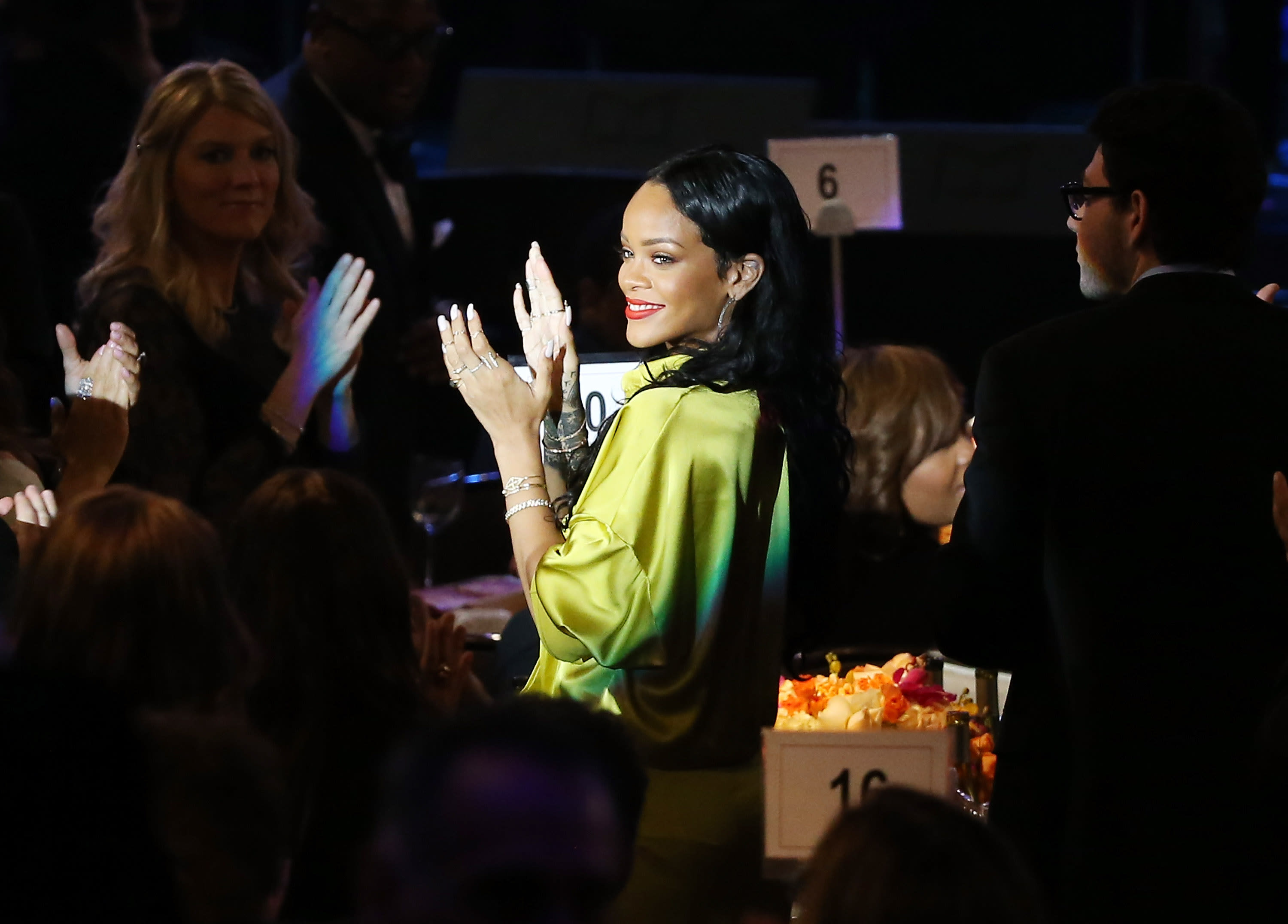
“I think a lot of times, people get intimidated by the exclusivity of [The Academy],” Vannicola explains. “Some don’t ask questions, and they don’t even have a connection to know how to get it. And it is a lengthy process because you need two recommendations from industry professionals that are active in the Academy, and then you have to have professional industry placement credits and press that shows that you’re active in the community.”
Because the traditional route to gain voting privileges requires an extensive résumé—compared to being ushered in from a Grammys win—it’s more difficult for younger music professionals under the age of 30 to gain them. As Variety revealed from interviewing several older voting members, many of their views also reflect the archaic side of the industry. But from the current generation of artist’s perspective, Iyla—a 29-year-old R&B singer who’s preparing to drop her new EP, Appetite for Disaster, on Friday—still finds magic in the award.
“I personally love the Grammys,” Iyla said. “I went to the Grammys in middle school, it was the only time I’ve gone, and it kind of changed my perspective of knowing I wanted to be an artist… I definitely think that winning a Grammy would be amazing to me.” The singer also voted in the Grammys for the first time this year.
Given the seemingly thick veil of mystery surrounding how to become a Grammy voter, we talked to several younger voting Academy members to learn more about how they gained voting rights, how the Academy can be more transparent with the voting process, and why they believe the Grammys are still important to the current generation.
Teezio, 32, Los Angeles, Grammy-nominated Mixer & Engineer
When did you become a voting member of the Academy, and how old were you?
I just got my voting rights this year for this year’s Grammys. I’m 32 years old now, I’ve worked in the business since I was 18. I started with Juicy J from Three 6 Mafia, that’s who put me on at the very beginning of my career. But I was not a voting member the entire time [I was in the industry], but when I got with Chris Brown, I started to work on records that were starting to get nominations. That’s when I started to try and figure out how I could get into the Grammys. I actually went to the Grammys last year as a non-voting member for the first time because I had an Album of the Year nomination with Lil Nas X, and also with H.E.R.
Do you think you would have gotten your voting privileges without your impressive résumé? How difficult is it to acquire?
It’s possible for someone to vote or become a voting member in the Grammys without ever receiving a nomination. The way that would work is, if you’re a person that knows two other voting members, they can essentially vouch for you. Everyone gets two vouchers a year, so I can send one to someone else, and then a different party has to send another one. That person can then be inducted into the Grammys, and then they can have voting power the following year.
Do you know anyone else around your age with the right to vote?
I think there are a few young guys here, and that’s usually producers, artists, or writers. Engineers sort of have a long road compared to producers. There are a lot of producers between the ages of 20 to 26, who already have nominations or are currently voting members at such a young age. I think with producers, it’s one of those things where it’s like—if you produce a big record, your career changed that day. Versus someone like an engineer, a young recording engineer at 24 can end up cutting a Cardi B song, and that record blows up, but that doesn’t mean that recording engineer’s phone will be ringing off the hook. As a producer, yes. For engineers, most of my peers that I have are either my age or older. The engineering road is a very slow road. In 2019, I had done “No Guidance” for Chris Brown and Drake, and it wasn’t like when that record blew up everyone was trying to find out who recorded it. They were trying to find who produced it. Most mixers don’t get huge records until they’re between 28 and 40 years old.
Because engineering is less glamorous than producing, do you think the résumé required for engineers is much more involved?
For sure, because a producer can have one hit that’s Song of the Year, for example, and that’s it. With engineers, it is a lot harder. For example, if there’s a guy who was 22 years old who recorded Cardi and gets a nomination, that engineer will get to attend the Grammys, but not as a voter. They’d still have to get the two people to vouch for you to get put in. So even though I had been nominated for Album of the Year twice last year, that didn’t just bring me into the Grammys. I still went through the process of getting two of my peers to vouch for me. And obviously, when they vouched for me they were saying, “Hey, he worked on these songs that were Grammy nominated,” because they have to fill out a form that explains why you should be in the [Academy]. You’re going to see a lot younger artists and producers at the Grammys before you see engineers.
Why do you think the Grammys should be important to the current music generation?
The Grammys have always been important. They’ve always been a marker above all the plaques that we get and Billboard No.1s. It’s almost more important, like reaching above that, because in my opinion, the Grammys are not based on sales. It would be made for something to be based off of sales, whatever sold the most or had the greatest impact. When you talk about impact, what [usually] follows with that is sales. If something was streamed a billion times, it had a large impact, and because of that it also made a lot of money. All of these records impacted and had huge sales, and then it’s about choosing who the people thinking out of those which were the most impactful.
“There’s just a lot of people from the older generation voting.”
What ends up happening is, because of the disproportion between younger and older people, you get those older artists that always end up in these categories, and our generation has no idea why. Like when we watched the Grammys recently, it was Beyoncé versus Adele and everyone for Song of the Year, and then boom, the [Bonnie Raitt] who [few people knew] won. You may say, “OK, it was voted,” but I don’t know anyone who knew that artist. There’s just a lot of people from the older generation voting. The people that were making records in the ‘70s, ‘80s, and ‘90s are all still voting. I came up in 2008, so my generation would be 2008 forward.
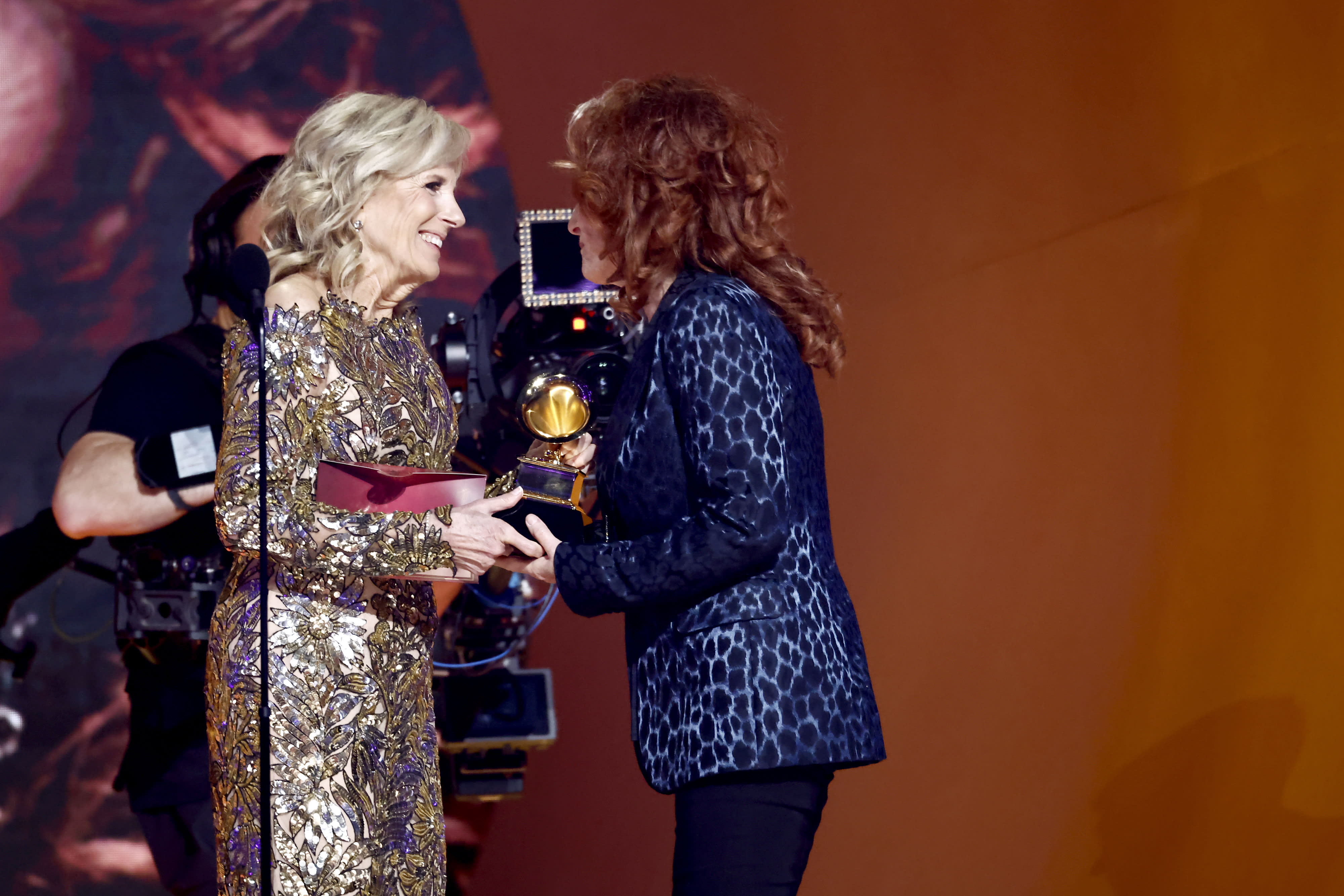
That’s why I think it’s important to have more people from the younger generation of music curators in the voting space, so that the awards can reflect what people are currently listening to.
One-hundred percent, because you don’t want to say that stuff that’s older isn’t valid. That’s not true. But you want to think about, as a larger population, what music has the greatest impact. The people who listen to and stream music every day are between the ages of 8 and 45 years old. When they talk about impact, I think about current culture impact. The culture was different 10, 20 years ago, and I think when you’re talking about Grammys, you’re talking about music that was the most impactful between 2022 to 2023.
What can the Academy do better in terms of transparency with the public on the voting process?
I think transparency is a delicate thing, because I don’t know how far they can go to be like, “Look, here are the numbers.” Maybe they can show the actual number of votes [for each category]. Another thing they could do, which they are sort of doing now, is they are doing this next generation thing that I was a part of. They’re trying to push the initiative of the younger generation coming in, which is great. And the second thing they could do is really rally voting. It’s one of those things where, like in politics today, people try to get the younger crowd to vote. I think it’s about doing that and trying to get the younger generation to vote. And a lot of the time, it’s not even the Grammys. If there’s not a lot of young people voting, it’s not that the Grammys are doing something wrong. It’s that the people aren’t voting and it [becomes unbalanced].
Grace Weber, 34, Los Angeles, Grammy-winning Songwriter
When did you become a voting member of the Academy, and how old were you?
I became a member back in 2017, when Coloring Book won Best Rap Album because I was a writer on “All We Got” with Chance [the Rapper] and Kanye [West] on that project. It was crazy because I don’t even think I processed even when we were watching the Grammys on tv. I was in LA with a group of friends and artists who also worked on Coloring Book, and we were watching the show, and we didn’t process it until Chance won that we were all Grammy winners, too. That’s when I got invited to be a voting member. Since then, you have to pay a fee [$100 per year], but they’ve waived it because of the pandemic, and that keeps you in as a voting member. I was 28 years old.
Before working with Chance, did you have any ambitions of becoming a part of the Academy?
To be honest, I never really thought too much about the voting side of things. Coming up, I dreamed about performing at the Grammys, or the idea of the Grammys. I don’t even know, for me, if being a Grammy winner was always this huge thing. I honestly didn’t know how it worked. But when the opportunity came around for me to become a voting member, it definitely opened my eyes. There’s some sides of it that I think are really great and easy, and then there’s others that could be changed.
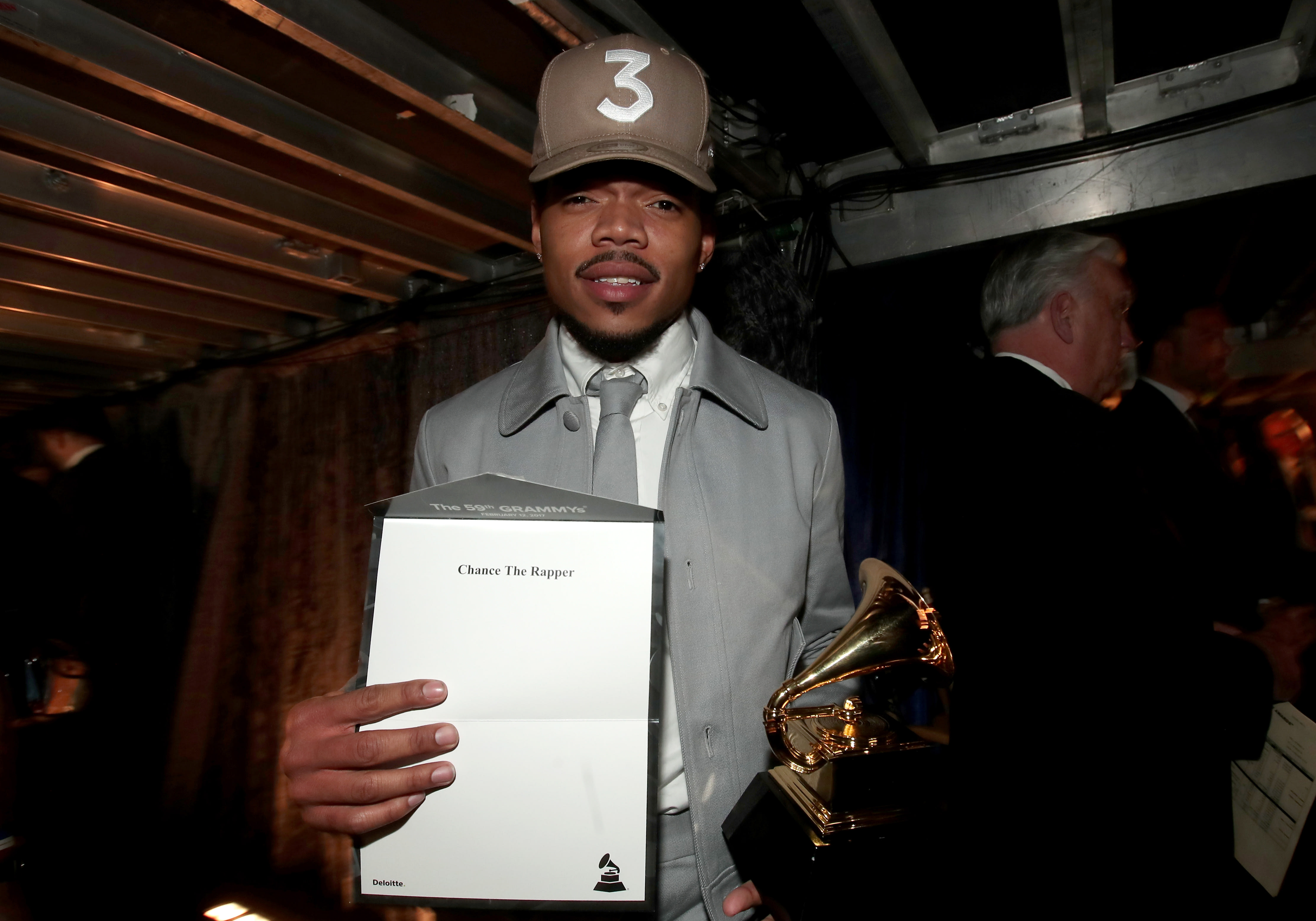
What was the most surprising thing you learned from seeing behind the curtain of the Grammy process?
I was definitely surprised by the online portal and the way you vote. It’s easy, but it’s a lot, especially in the first round. There’s just a lot of music and a lot of entries. So they have you vote in your field of expertise. You vote in up to 10 categories in up to three fields in each genre, so I vote within R&B, pop, and sometimes I’ll vote in the rap category or the songwriter world. But even within that, in the first round, there’s just so many submissions so sometimes it can be hard to go through everything, because it’s also in alphabetical order. It always being in alphabetical order always threw me off, because if you don’t get all the way down to the “Z’s” you could lose a lot. I think you also have to know who’s up for nomination, so sometimes I have to Google who I may be forgetting as I’m going through the alphabetical list. The volume of entries can sometimes be overwhelming and I do wonder if people get missed sometimes. Something that’s a little interesting, though, is that it’s really well run in terms of how you login, and the website is very easy to use.
How many rounds are there?
There are only two rounds. There’s the first in October, and then the second round is from Dec. 14 to Jan. 4. So people submit, and then there’s a screening process where 300 experts, they call them, in different fields decide if the submissions meet specific qualifications. I don’t know who those people are or the qualifications, but I think it’s technical stuff, like the length of the album. Then they send the first round of ballots after the screening, and then the nominees get picked, and the second round is going through the nominees to pick the winners.
What is your process like when you’re voting? How do you choose who you’re voting for, especially in the larger categories?
For me, it’s a combination of picking the stuff that affected me the most and what I love, but it’s also really hard. A lot of Steve Lacey “Bad Habits” showed up in a lot of the categories, and I obviously like Beyoncé and “Break My Soul,” so when they were against each other, [it was tough]. I’ll think about the production or the actual song from a perspective of if artists have taken this path before. I think because my focus is on R&B and pop and the main categories, I feel like I know the projects for the most part that I’m voting between, and then I just pick what I think was the dopest.
Why do you think the Grammys should be important to the current music generation?
I think the coolest thing about the Grammys is when they recognize artists that are a little bit left-of-field or aren’t coming up through the traditional label path. I think when Chance won, it was a really cool moment seeing an independent artist winning, and really feeling like his art and fight to get into the ring inspired hope and inspiration for artists and musicians to feel like they can do it too. I think every year we see moments like that happening. The Best New Artist category, I knew Samara Joy, but I didn’t know her well, and at first I wasn’t expecting that. I voted for Omar Apollo, but I thought Omar or Muni Long [would win].
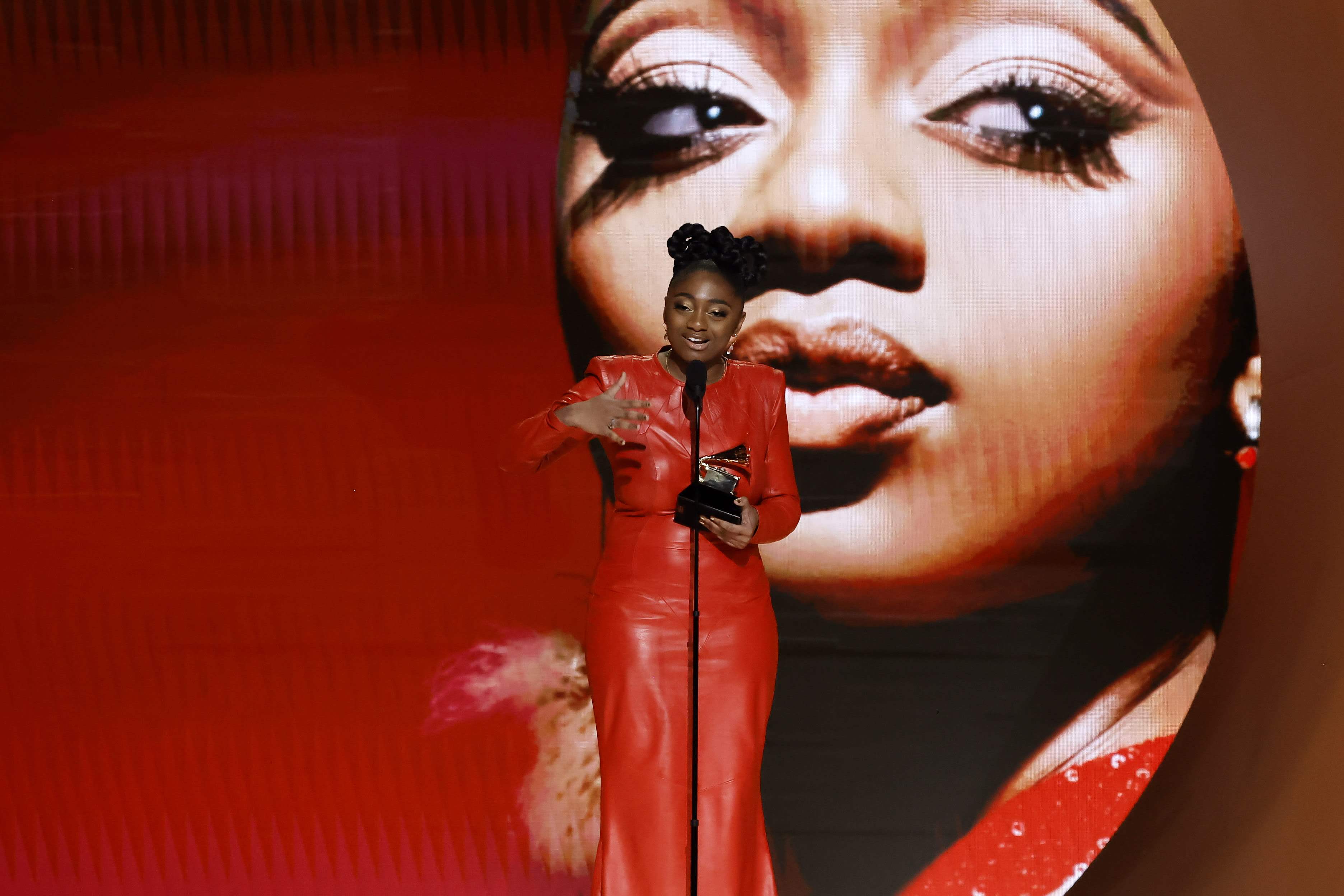
But then when I looked up Samara and her acceptance speech, I thought it was cool that someone like her who wasn’t coming up the traditional record label channel is getting this moment and she’s such an amazing jazz singer. So it gives you that hope that there’s always a chance to be recognized for your work on this big stage. And the stamp “Grammy winner” does change people’s careers. When I won, I got access to a lot of random things that I didn’t even know, even worlds outside of music directly.
What can the Academy do better in terms of transparency with the public on the voting process?
I think maybe more transparency around who the voters are specifically. I’m always curious about how many voting members are presidents of labels, how many of them work at labels, and how many recording engineers are members, singers etc. I think it would be interesting to see the swath of if each category has the same amount of people voting since you do vote in categories specific to your genre. I don’t know what that would reveal, but I’ve always been curious about who are the voting members. You don’t have to be a Grammy winner to be a member, there’s an application process which I personally don’t know because I entered differently. I also think transparency might also open some eyes about having a different application process so that younger people can apply to be a part of this.
I feel like there’s always going to be those moments, like this year with Song of the Year. Bonnie Raitt is a legend, so no hate, but how did “Break My Soul” not win? So I literally don’t know how that happens. Since every member can vote on Song of the Year, are there literally just more members into that? You do wonder how that happens.
Sama’an Ashrawi, 32, Houston, Writer, Filmmaker, and Music Producer
How long did it take for you to become a voter? Do you think it’s a viable goal for a younger person who doesn’t have a dense résumé/industry connections?
It took me two tries to get in. The first time I applied, in 2018, I had a couple of credits to my name, but I guess I needed to put in a little more work to gain the confidence of my peers. The rejection was definitely humbling. The second time around, in 2021, I had more robust credits and maybe because of that I had been nominated by a few peers who had leadership positions within the Texas chapter of the Recording Academy. By that time I believe they had also changed the process to include the requirement of letters of recommendation. You now need two of those in addition to your credits as well as a detailed bio of the work you’ve done. Thankfully, the second time around, I got in. Dream come true for me.
It’s absolutely a viable goal for a younger person to become a voter, I think perhaps the process has historically been kind of a mystery, so I really appreciate the effort the Academy is making now to publicize the process. I grew up with Rolling Stone as my bible, really caring about album reviews and ratings, so of course every year I would go through the RS Grammy preview and make my picks and get excited and disappointed by who won and lost. Since I was a teenager, I dreamt of one day becoming a voter, partly because I felt the voting body didn’t always get it right. That’s subjective of course, but I thought maybe if I one day became a voter I could begin to make a fraction of a difference.
“Don’t be afraid of rejection, it’s good to get your name out there.”
I didn’t grow up with any music industry connections, so I had to really work towards becoming a voter. My advice to young people is to build up your credits, collaborate with musicians around you who you admire, become active in the scene of your city or town in whatever way you’re able. I know artists with disabilities who collaborate over the internet and do live streaming shows, they are fostering community in a really beautiful way. These relationships will naturally accumulate over time and become the wave that carries you to shore. And vice versa you will be part of the wave that carries your peers.
Also don’t be afraid of rejection, it’s good to get your name out there.
Why did you vote the way you did, and was there one you felt passionate about?
I voted for Beyoncé in both of these categories, I’m definitely not being quiet about that. The way the big three awards are defined places emphasis on “artistic achievement” and “technical proficiency,” and I think by those measurements Beyoncé was clearly the best of the nominees.
For Album of the Year, I don’t think that you can objectively look at any of the other nominees, save for Bad Bunny, and make the argument that any other album was of higher quality or had a deeper cultural impact. Harry makes great music, he made a great album, but it just wasn’t Renaissance, and it never could have been. Beyoncé’s vocal runs on “Plastic Off The Sofa” alone are better than anything on Harry’s House. That’s not a dig at Harry, that’s just how incredible Renaissance is. That’s how astounding Beyoncé’s performance on that album is. It’s transcendent.
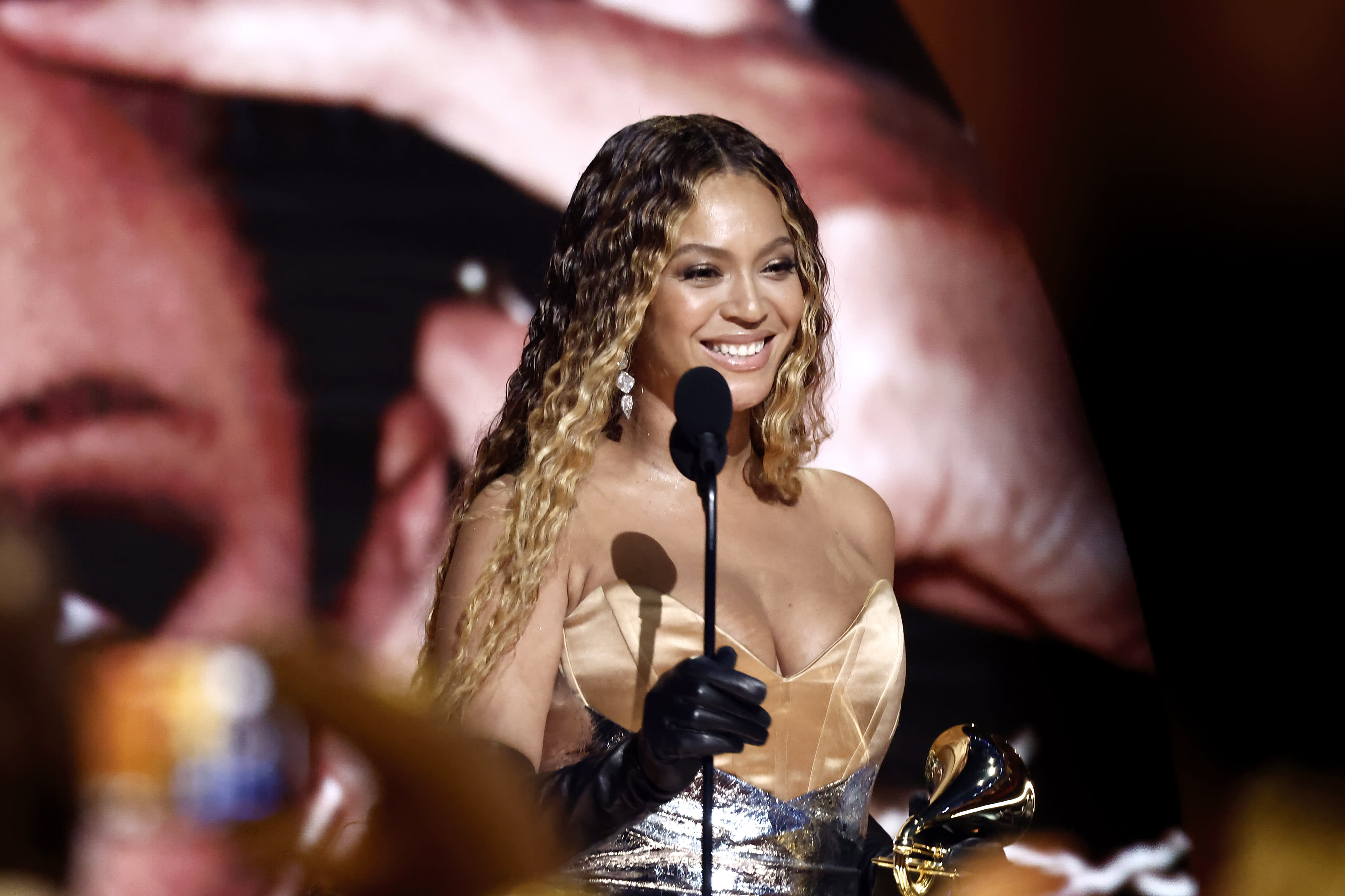
For Song of the Year, a songwriters’ award, I think the competition was a bit closer. From a pure songwriting perspective, Kendrick did something amazing with “The Heart Part 5,” that was the next best in my opinion. I’m of the Nina Simone school, you know, that an artist’s duty is to reflect the times. I don’t think any other song met the moment nearly as urgently as “Break My Soul.” What’s amazing about the writing on “BMS” is it both felt timely and instantly timeless. Bonnie Raitt, the legend, she told a captivating story in her song, but it was not “BMS.” Jay’s verse on “God Did” was also very impressive, a commanding one that we will surely be talking about years from now, but his wife simply outdid him and everyone else.
Why do you think the Grammys still hold value to our generation?
I think the sheer exposure a Grammy win nets you, especially in the major categories, is incredible. You saw how Samara Joy’s streaming numbers skyrocketed. I’m sure her phone is ringing in a way it never has before. That’s amazing to me. Life-changing stuff.
What can the Academy do better in terms of transparency with the public on the voting process?
The Academy has been making big efforts to expand and diversify the voting body. Those efforts are vital. I hoped that maybe this time around we had crossed a threshold that would make the awards more reflective of the culture, but clearly we still have work to do.
I think that a year or two before I joined, the Academy recognized that it certainly needed more Black and brown voters, and younger voters, so I believe that the year I came in, maybe the year before, was the beginning of a more formal effort by the Academy to improve its diversity. As these efforts continue I believe the awards will come to have a more significant emotional meaning. The winners should feel like a true reflection of the will of the culture, that’s my hope at least. And that’s what I’ll be putting my effort towards as my role within the Academy grows.

